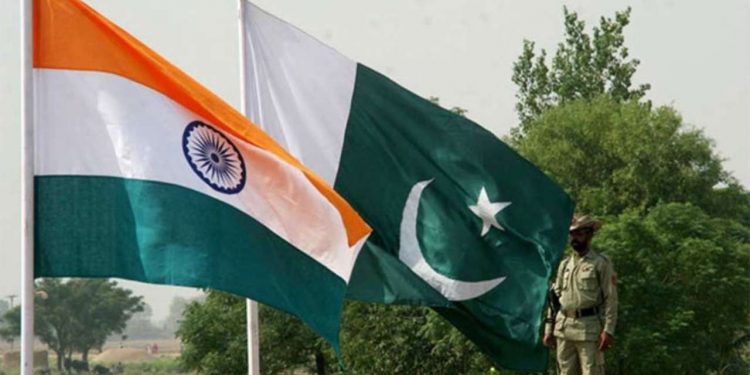The official displeasure of India in the aftermath of the dastardly Pulwama attack resulted in withdrawal of most favoured nation (MFN) status to Pakistan paving the way for enhancement of customs duties to any level (here 200% on goods coming from Pakistan). In fact, the principle of MFN is quite consistent with the principle of equity embodied under the spirit of General Agreement on Tariffs and Trade (GATT). According to the MFN principle, each of the WTO member country should “treat all the other members equally as most-favoured” trading partners. Accordingly, India accorded MFN status to Pakistan in 1996 as per its commitment as WTO member though Pakistan has not reciprocated citing “non-tariff barriers” created by India and “huge trade imbalance with India”.
India being one of the founding members of WTO and by virtue of its membership, it automatically receives MFN and national treatment from all WTO members for its exports and vice versa. Similarly, another important principle of “national treatment” does apply to the member countries, once a product, service or item of intellectual property enters the domestic market of a member country. Therefore, charging customs duty on an import is not a violation of national treatment even if locally-produced items are not charged an equivalent tax. The MFN provision as articulated under Article I of the GATT underlines the principle of non-discrimination, which prohibits WTO member countries from discriminating among their trading partners subject to some exceptions.
Transparency, due process; access to markets; fair competition within markets; and the dispute settlement mechanism are the building blocks of the WTO. It presupposes a rule-based participation and aims at ensuring stability and predictability in international trade. In this background, the Indian move may not be well appreciated at the WTO-level. Any harsh measure likes this, need to be initiated under the rubrics of WTO laws and it does provide for certain exceptions like “security exception clause” for invoking such measure. In this case, it is imperative for India to consider making use of a ‘security exception’ clause provided under Article 21(b) (iii) in the GATT to deny the MFN status to Pakistan. But India’s recent decision of hiking customs duty to 200% on Pakistani goods does not use the sequators of either national security or essential security interests or nor does it properly explain under what circumstances it was imminent to withdraw the MFN status. If the matter is taken to the seat of Dispute Settlement Mechanism of WTO, India has to be ready with its defense of essential security interests with sufficient explanation as to why and how increasing customs duty to 200% on Pakistani products was the imminent action to protect India’s ‘essential security interests’.
India and Pakistan are the two largest economies in the South Asian region, both countries promise huge potentialities for intra-regional trade. Though the revoking MFN status is frowned upon by WTO, in this case the saving grace is the non-reciprocal posture by Pakistan in terms of granting MFN status to India. Reportedly, India’s decision will be like a death knell to Pakistan’s exports to India, which currently stand at around $490 million, it seems to be over- exaggerated. In fact, the trade volume between the two countries is worth about $2.30 billion, which is less than 0.40 per cent of India’s total volume of trade. Further, in case of any retaliatory tariffs on Indian goods or expansion of its negative list prohibiting imports from India, it will certainly have a negative impact on Indian exports which is close to worth $2 billion. Realistically speaking, this will cause far more harm to India than to Pakistan. Further, foreign trade experts opine that India had gained far more from trade ties with Pakistan than the other way around. Pakistan’s exports to India have barely crossed the half-a-billion-dollar mark since the granting of the MFN status by India. In this background, Pakistan may not face an exacerbating situation with the increased import duty. The backlash may be on the proliferation of informal trade, which is approximately double than the formal trade under South Asia Free Trade Area Agreement (SAFTA) 2004 – Pakistan’s share in external trade is less than 10%, while India’s share is more than 70%. India’s steps may propel Pakistan to search for new markets beyond SAFTA and growing prospects of trade through a third country, mainly via Dubai and Singapore.
In the short history of GATT/WTO there are several member countries, especially the US has invoked the national security exception on many occasions. In the pre-WTO era, the US used to rely on the national security exception to defend its MFN violations. For example, in 1996 when European Communities (EC) challenged the Helms-Burton Act of the US that strengthened the American embargo on Cuba, US justified it as a national security exception. Nevertheless, the dispute ended in a mutual settlement before the commencement of adjudicatory process. Even last year, the US announced a hike in steel and aluminum tariff rates citing national security reasons though such hikes in tariff rates was camouflaged to protect the US industry. In this context, India should explore such an explanation, in case this issue is raised at Geneva.
In this context, it is high time that the two powerful members of the WTO took steps to give a fair chance to an accelerated bilateral trade by deescalating the war hysteria and ensured that there is peace and stability in the region.
Sanjeeb Panigrahi






































